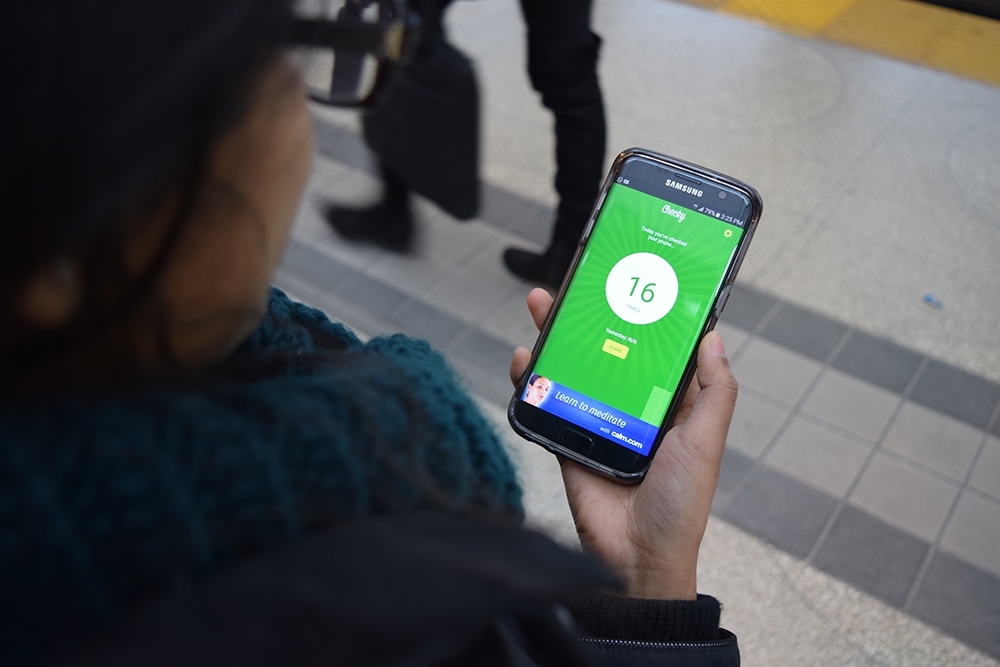Jodie Vanderslot | Staff Writer
Featured image: Checky, launched in 2014, is available for free on both Google Play and the App Store. | Fatema Ali
It’s the first thing you reach for in the morning.
It’s your alarm; your watch; it holds your secrets; your photos; your answers and it’s missing. Panic sets in and the search begins to find your phone. Then you’ve recovered it—crisis averted—it’s your escape from boredom, your form of communication.
It is a testament to the power that technology has over so many of us. It is a distraction and its presence is constant, even if you don’t really need it.
The first iPhone was released almost ten years ago in June 2007, bringing forth an insurgence of smart, touch-screen, interactive technology with a variety of nearly inescapable triggers. Once we’ve formed habits, they’re hard to break.
For the majority of people, their phone is always within reach. People find themselves increasingly more engaged with their phones than with the people around them. Compulsions are a powerful force in our brains, interrupting lives and making it hard to complete everyday tasks.
Phones can be an interaction deflector, an escape from conversations we just don’t want to have. For others, checking their phone is a way of ensuring they’re not missing out. The fear of missing out leads many to check social media again and again. It is what fuels people to check their phones right when they wake up, right before they go to sleep and all the time in between.
One way to determine how frequently you are checking your phone before attempting to scale back is, ironically, by using an app. Checky, available on both Android and iPhone, was introduced towards the end of 2014.
Checky tracks how many times a day you unlock or open your phone. The app QualityTime has a similar function for Android, tracking how many times you unlock your phone but also how long you spend in different apps while your phone is open.
These apps are designed to put things into perspective. If you had to guess, how often do you think you check your phone everyday?
“That depends,” says Marcos Vina, fourth-year business administration student.
“But on average, maybe once every 10 to 20 minutes.”
Daniel Krasner, third-year kinesiology student, guesses around 75 times a day.
“I would estimate 50-plus times,” says Arianne Villarin, fourth-year cognitive science student.
Results vary by the day, as there are many different factors that contribute to or prevent one’s ability and desire to check their phone. Michelle Klein, head of North American marketing at Facebook, presented findings last year at a digital media conference at Social Media Week New York and stated that the average millennial checks their phone more than 150 times a day.
Monitoring how often you check your phone and the usage of certain apps can be beneficial for productivity and time management, but for some this adds a new level of stress. These apps are intended to provide some perspective on our phone and social media use, prompting questions such as:
“Do you have the time to check this right now?” “Is this really the best use of my time?” and “Did you really spend three hours studying if you checked your phone 15 times?”
Technology is useful in countless ways, but it can also be overused and misused. While apps like Checky and QualityTime confront users with the results of just how attached they are to their devices, the chances that this bond will be shattered are hard to guess.
As a society, we are so reliant on our phones, despite knowing that this dependence is problematic. The goal of these apps is to provide introspection regarding habits, in the hopes that users will make the active choice to limit the number of distractions they allow into their lives on a daily basis.


